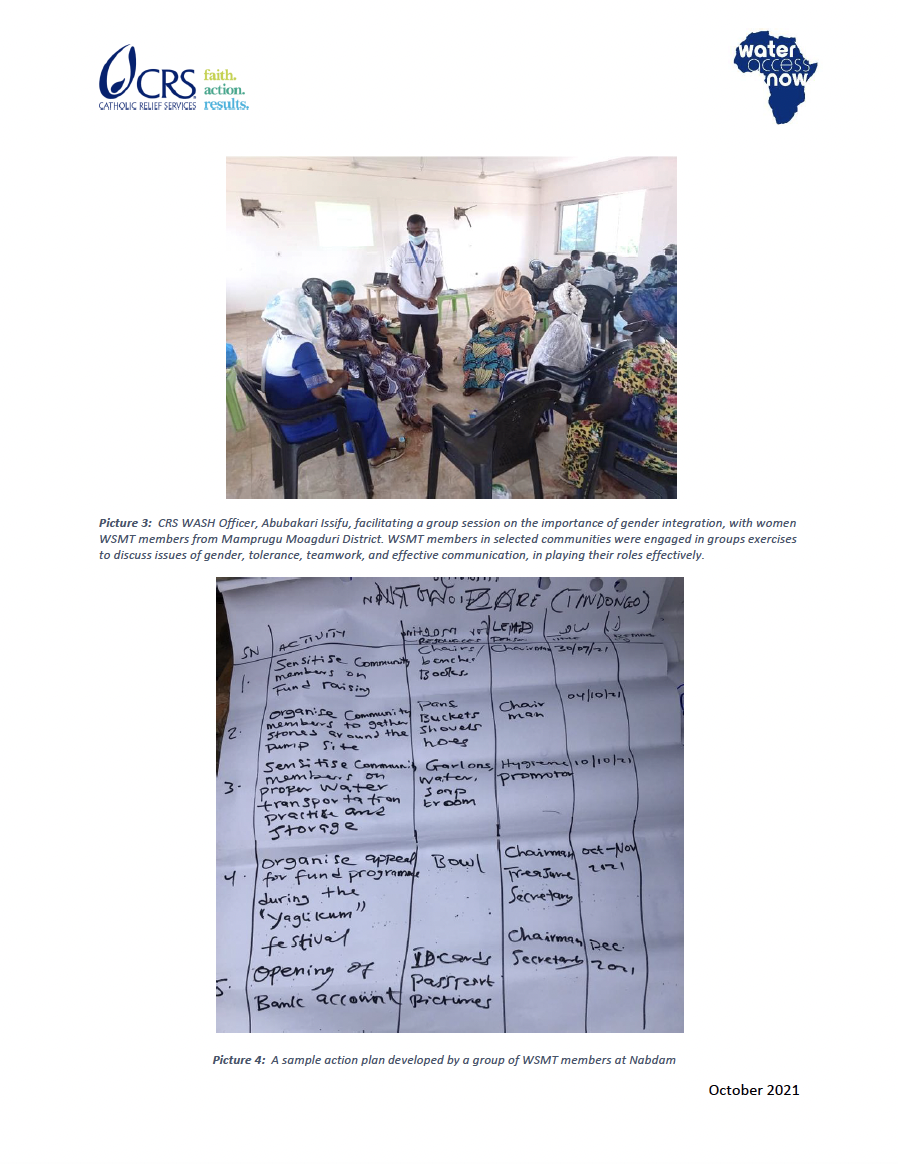Prepared by CRS Ghana:
Background and Introduction
Over the years, Catholic Relief Services (CRS) and Water Access Now (WAN), in collaboration with local government authorities, through the Improving Access to Water in Northern Ghana (IWANG) project, have partnered to address some of the social and developmental challenges, especially related to limited access to safe drinking water. Since 2007, WAN and CRS have supported over 220 health facilities, schools, and communities to gain access to safe drinking water in the Northern, Upper East, Upper West, and Oti Regions. To date, WAN has provided over $2,132,733 to support the provision of safe water supply through the construction and rehabilitation of boreholes, including limited mechanized boreholes, and simple water treatment sites (i.e., in communities with poor ground water potential and without an improved source for drinking water).
In 2021, WAN provided funding of $250,000 for the construction of 25 boreholes, one limited mechanized water system, and two small water businesses (using simple chlorination treatment), across the five districts of Nabdam, Mamprugu Moaduri, Gushiegu, Karaga, and Saboba.
Formation and Training of WASH Committees
To guarantee continuous functionality of the water systems and sustainability of water service delivery in the beneficiary communities and institutions, the project is providing local capacity for operation and maintenance through the establishment and training of Water and Sanitation Management Teams (WSMTs). Hands-on training was conducted for selected WSMTs, in Nabdam (August 30th - Sept. 4th), Mamprugu Moaduri (September 6th- 11th), Gushegu (September 13th – 18th), Karaga (September 6th to 11th) and Saboba (September 20th to 22nd).
The trainings covered topics on effective operation and maintenance of their community water points (boreholes and limited mechanized systems) as well as key messages on WASH behaviors. The training made use of the Community Water and Sanitation Agency (CWSA) WSMT training Guide, alongside other nationally approved and applicable training modules such as roles and responsibilities of WSMTs, mobilization of O&M funds and records keeping, financial management and accountability, organization of meetings and writing of minutes, water safety, water site management and hygiene, networking and negotiations with Area Mechanics and spare outlets.
A total of 139 WSMT members (of which 61 are women), from 28 communities were trained within this period across the five Districts. In all, 25 WSMTs from the 25 beneficiaries of WAN 2021 and 3 WSMTs of the 3 limited mechanized solar powered water systems funded by WAN in 2020 at Nangodi, Zanlerigu and Gbani Health Centers were trained.
Siting, Drilling and Construction
The northern part of Ghana has experienced torrential rains in the recent months, causing serious erosion to roads and making some beneficiaries communities difficult to access. Aside damage to roads, the rains also had high potential of compromising the quality of the ground water exploration at the time. As a result, siting, drilling, and concrete works were purposefully delayed and will commence late October, by which time the communities will be accessible and ground conditions favorable for construction works. CRS will engage District partners to undertake monitoring of borehole drilling and construction activities.
Conclusion
With the completion of all software activities (trainings and capacity building), the team will now focus efforts on close quality monitoring of construction works on boreholes and limited mechanized systems.




